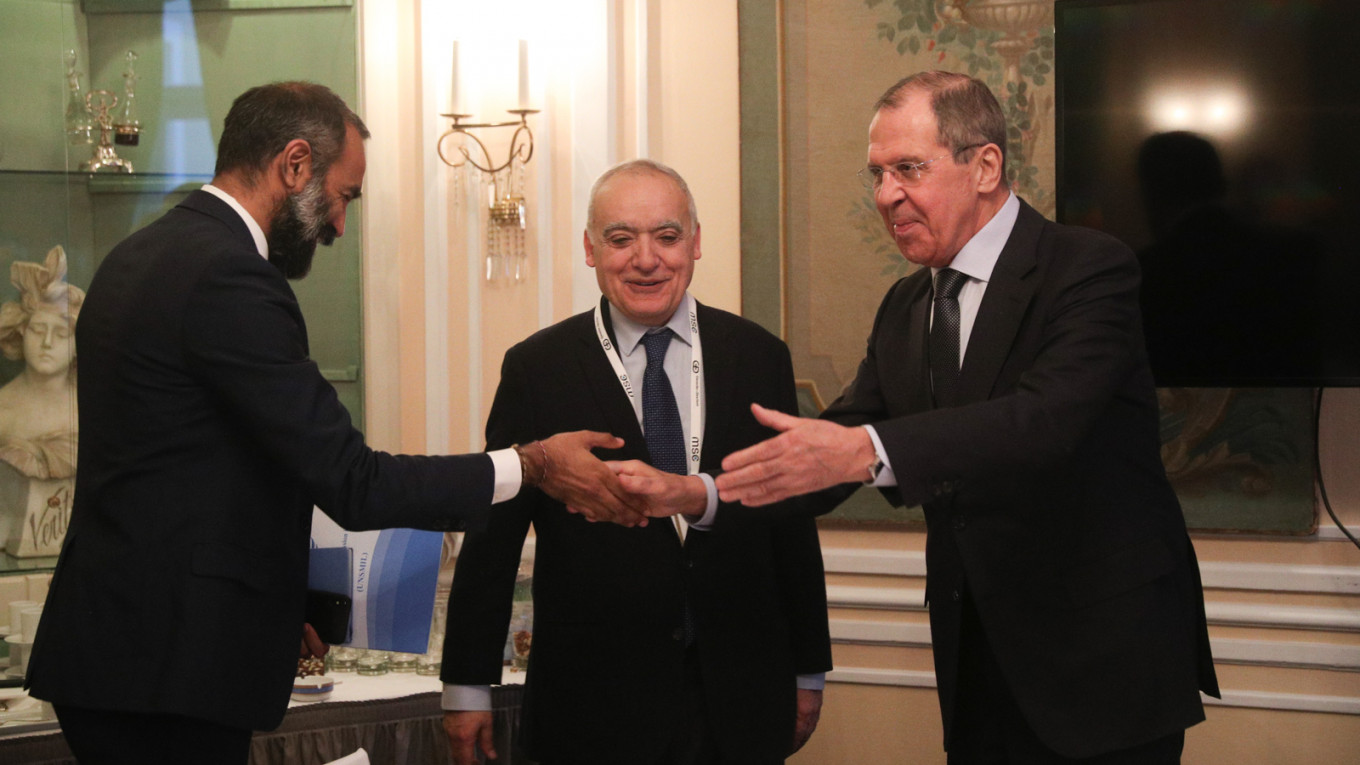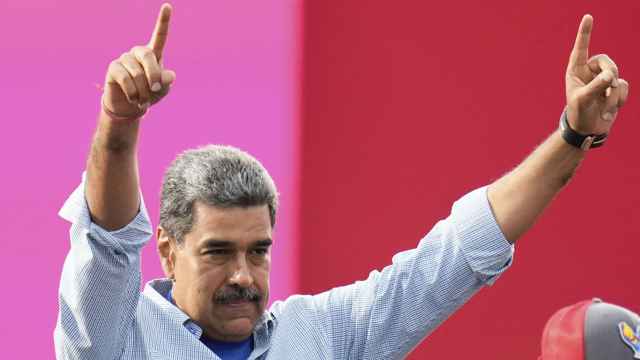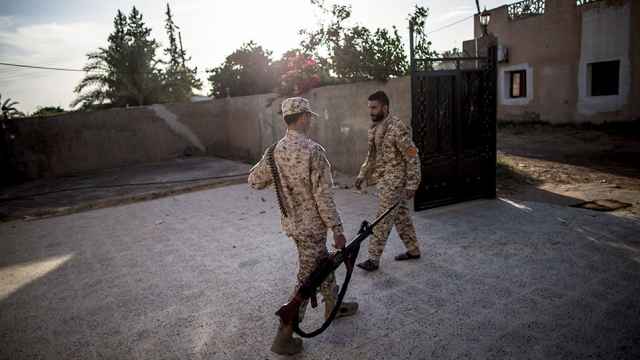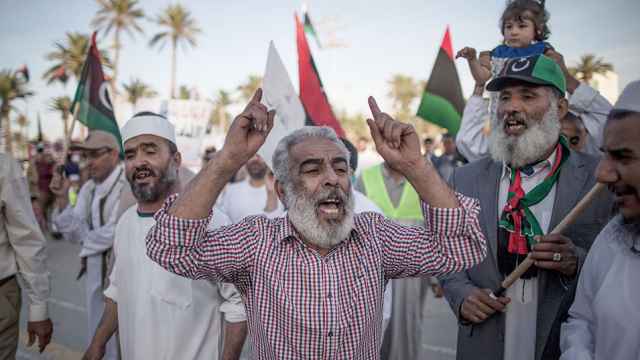By the time Putin became interested in expanding Russia’s reach in the developing world, even the Soviet-era allies he had left had become shaky. Assad was involved in this century’s deadliest civil war, and Russia had to mount a full-scale military operation to keep him in power. That was a risky bet that hasn’t delivered a clear pay-off yet: Syria is in ruins, and the opportunistic partnership with Iran is more of an inconvenience than a helpful alliance, given Iran’s problems with the Western world, Israel and, most importantly for Putin, with Saudi Arabia.
Algeria under Bouteflika was the single biggest foreign buyer of Russian weapons, and the Kremlin hoped to keep the relationship going even after the octogenarian agreed to cede power. But recent events have highlighted the fragility of these hopes. On March 19, Algerian Foreign Minister Ramtane Lamamra, appointed to the post just six days before, visited Moscow to tell Russian Foreign Minister Sergey Lavrov, and through him Putin, that everything would be all right and there would be continuity. But less than two weeks later, Lamamra was fired.
Russia’s newer relationships are even iffier. The Russian investment in the Venezuelan regime of Hugo Chavez and his successor Nicolas Maduro is on the verge of being lost. A Syria-like operation there is hardly an option, both because of the logistical difficulties of deploying troops halfway around the world and because of the overwhelming risk of fighting in the U.S.’s back yard.
In Sudan, whose President Omar Al-Bashir has cultivated a personal relationship with Putin, Russia admits deploying both government and private military advisers; active Russian assistance to Bashir is more likely, should he needed to fight back against the protests that have continued since December. The potential upside for Russia is high: Apart from the usual package of arms sales and a nuclear power plant project, a Red Sea naval base for Russia has been under discussion.
The strong pushback against General Khalifa Haftar’s bid to take the Libyan capital, Tripoli, endangers one of Russian President Vladimir Putin’s risky bets. But even if Haftar loses, Putin will keep seeking similar adventurers in Libya and around the world to back.
Russia’s version of great power foreign policy these days is an exercise in the art of the possible: Take a gamble on those who are themselves willing to take a gamble on Moscow’s aggressiveness and the murky economic benefits it can offer.
In the 1990s, an impoverished Russia turned inwards and lost friends and clients throughout the developing world. Syria, ruled by the Assad family, and Algeria under President Abdelaziz Bouteflika, who first visited the Soviet Union as a minister in the 1960s, were two of a few holdovers from the Soviet days, and Putin has gone out his way not to lose them.
But other strategically important allies in Africa, the Middle East, Asia and Latin America were lost to the U.S. and, lately China: Russia couldn’t match the size and variety their investments.
So the Kremlin went on a hunt for potential allies who might be interested in Russia’s two-part package: On the one hand, military expertise and weapons, and on the other, the resources and know-how of Russia’s civilian state-owned companies, mostly oil and gas ones but also the atomic power giant Rosatom and railroad monopoly Russian Railways.
That package can be more attractive to strongmen than seeking U.S. or Chinese support because it comes without visible strings attached and because it offers opportunities for personal enrichment. Not all of the assistance comes through official channels. Players like St. Petersburg entrepreneur Yevgeny Prighozhin with his private military company offer their services on a concession basis. The state companies, too, show an understanding for the peculiarities of doing business in countries without much of a legal framework.
In Central Africa, Russian military instructors are propping up a regime that doesn’t control most of the country’s territory. It’s not a big investment for the Kremlin, though, and Putin is content to let private contractor Prigozhin take his cut and build goodwill.
The Russian involvement in Libya straddles the line between the old friendships and the new, opportunistic alliances with money-hungry regimes interested in Russian military support. The old, Kremlin-friendly regime of Muammar Qaddafi is gone, though Qaddafi’s son, Saif al-Islam, who harbors political ambitions, has maintained high-level Russian ties.
But, since 2017, Putin’s generals and diplomats have built a new relationship — with Haftar, who commands the strongest military force in Libya and contains most of the country’s oil and gas. The Russian government has negotiated with his opponents in Tripoli to relaunch Russian companies’ Qaddafi-era energy joint ventures, but these negotiations are more likely to succeed with Haftar in charge than with the Western-backed government of Fayez al-Sarraj.
Though officially bound by an arms embargo on Libya, Russia is reportedly supplying Haftar with weapons, and Prigozhin was present at a meeting between Haftar and Russian Defense Minister Sergey Shoigu late last year.
Moscow’s official line is that it supports the stability of developing nations in the face of Western attempts to undermine their legitimate rulers. That’s the claim Moscow has made in Syria and in Venezuela, and if necessary, it’ll make it again in Sudan.
But in Algeria and Libya, where the situation is murky at the moment, Putin’s bets are being made in private for now.
The problem with this entire series of bets, both official and semi-official, is that they depend on the success of players running extreme risks. In the absence of committed allies, Putin’s Russia has to act opportunistically and seek receptive bedfellows. In countries with serious resource wealth and in strategically attractive locations, the choice is extremely limited. And with this crop of situational friends, you win some, you lose some.
If Maduro falls in Venezuela, Russia will be on the lookout for others like him to befriend in the region. If Haftar fails to win control of Tripoli and his hold on much of Libya’s natural wealth weakens as a consequence, the Kremlin will be actively seeking others to empower so it can get back into the country’s oil and gas sector and seek opportunities for a naval presence. Defeats are part of this high-stakes game.
This opinion piece was first published by Bloomberg View
A Message from The Moscow Times:
Dear readers,
We are facing unprecedented challenges. Russia's Prosecutor General's Office has designated The Moscow Times as an "undesirable" organization, criminalizing our work and putting our staff at risk of prosecution. This follows our earlier unjust labeling as a "foreign agent."
These actions are direct attempts to silence independent journalism in Russia. The authorities claim our work "discredits the decisions of the Russian leadership." We see things differently: we strive to provide accurate, unbiased reporting on Russia.
We, the journalists of The Moscow Times, refuse to be silenced. But to continue our work, we need your help.
Your support, no matter how small, makes a world of difference. If you can, please support us monthly starting from just $2. It's quick to set up, and every contribution makes a significant impact.
By supporting The Moscow Times, you're defending open, independent journalism in the face of repression. Thank you for standing with us.
Remind me later.








